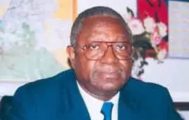6, April 2025
Pope greets crowds at Vatican in first appearance since leaving hospital 0
Pope Francis made a surprise entrance to St. Peter’s Square during a special Jubilee Mass for the sick and health workers on Sunday, marking his first public appearance at the Vatican since his release from the hospital two weeks ago.
The pontiff waved at the crowd that stood and applauded as he was rolled unannounced to the front of the altar in the square.
“Good Sunday to everyone,’’ Francis said, speaking into a microphone, which he tapped to make sure it was working on a second attempt. “Thank you very much.”
The pontiff’s voice sounded stronger than when he addressed well-wishers outside of Gemelli hospital on the day of his release March 23, after battling life-threatening pneumonia during a five-week hospital stay. He has just completed two weeks of at least two months of doctor-ordered rest as he continues physical, respiratory and speech therapy, as well as treatment for a lingering lung infection.
The pope referred to his experience with illness in both the traditional Sunday blessing and the homily read by Archbishop Rino Fisichella, organiser of the Holy Year that is expected to bring some 30 million pilgrims to Rome.
Addressing the sick among the crowd, the pope said in the homily read by Fisichella that “In this moment of my life I share a lot: the experience of infirmity, feeling weak, depending on the others for many things, needing support.
“It is not easy, but it is a school in which we learn every day to love and to let ourselves be loved, without demanding and without rejecting, without regretting, without despairing, grateful to God and to our brothers for the good that we receive, trusting for what is still to come.”
He also urged the faithful not to push the fragile from their lives “as unfortunately a certain mentality does today. Let’s not ostracise pain from our surroundings. Let’s instead make it an opportunity to grow together, to cultivate hope.”
In the traditional Sunday blessing, he offered prayers for doctors, nurses and health care workers “who are not always helped to work in inadequate conditions, at times the victims of aggression. Their mission is not easy and must be supported and respected.”
Source: AP























15, April 2025
Pope Francis transfers Cameroonian-born Nigerian Apostolic Nuncio in Sri Lanka to Ethiopia 0
Pope Francis has transferred Cameroonian-born Archbishop Brian Udaigwe, who has been serving as Apostolic Nuncio in Sri Lanka to Ethiopia.
The Addis Ababa-based Apostolic Nunciature has been vacant since May 2024, when the Holy Father transferred Archbishop Antoine Camilleri to Cuba.
The latest appointment of Archbishop Udaigwe, a Nigerian national who previously served as the representative of the Holy Father in Benin and Togo was made public on Saturday, April 12, by the Holy See Press Office.
Born in Brian in July 1964 in Cameroon’s Catholic Diocese of Buea, Archbishop Udaigwe was ordained a Priest in May 1992 for the Catholic Diocese of Orlu in Nigeria.
He joined the diplomatic service of the Holy See in 1994. The holder of a Doctorate in Canon Law served in the Apostolic Nunciatures in Zimbabwe, Ivory Coast, Haiti, Bulgaria, Thailand, as well as in the United Kingdom before he was appointed Apostolic Nuncio.
While Pope Benedict XVI appointed him Apostolic Nuncio to Benin in February 2013, assigning him the Titular See of Suelli, his Episcopal Consecration on 27 April 2013 took place at the start of Pope Francis’ Papacy.
Archbishop Udaigwe, who officially presented his credentials in Benin in June 2013 was the following month appointed the representative of the Holy Father in Togo.
Pope Francis appointed him Apostolic Nuncio to Sri Lanka in June 2020.
Source: AciAfrica